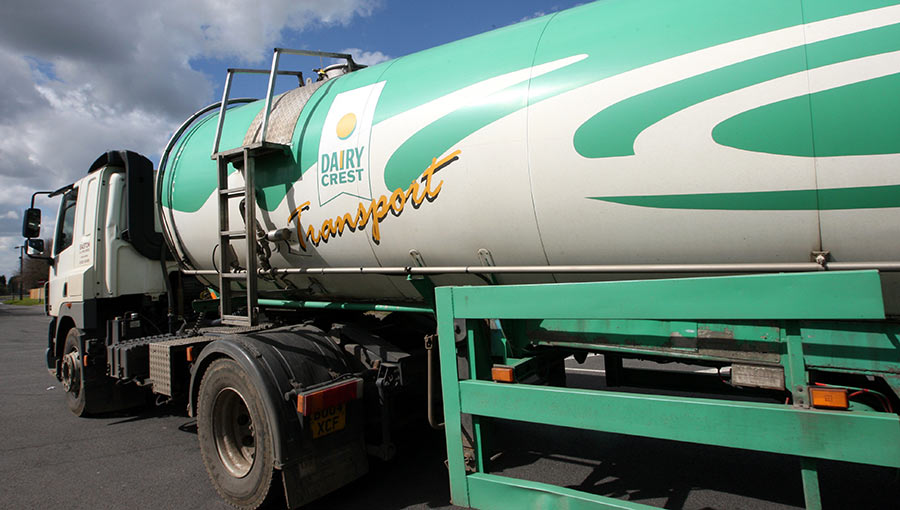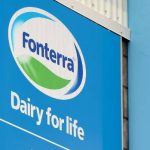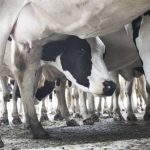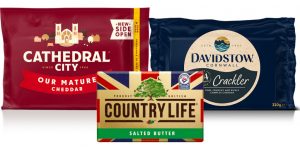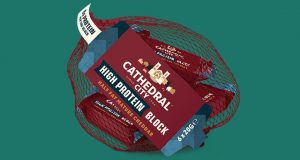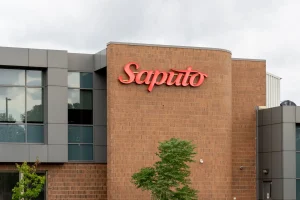
Industry commentator Chris Walkland said that the man at the helm of the UK dairy processor deserved a great deal of credit for achieving such a high value for the business.
Farmers Weekly caught up with Dairy Crest chief executive Mark Allen to get his thoughts on the sale.
Q. Hi Mark, this takeover is a big deal with a sizeable headline figure – what’s your take on it?
MA: We very much take this deal as a positive for everybody involved, whether that’s our shareholders, our stakeholders, our employees and the people you will be most interested in – our farmers.
Q. What is going to change for your 330 dairy farmers?
MA: The key thing is that absolutely nothing changes overnight. Dairy Crest Direct, our producer organisation, will also remain unchanged. Saputo’s view is we have a great relationship with DCD so there is no need to change it.
It’s not a legally binding guarantee but it is a strong verbal one.
With this new investment we want to continue our growth strategy and we are looking to grow our business in the South West.
For our employees, all of our factories will remain open and all of our jobs will stay.
Q. Talking about growth, what plans does Dairy Crest have for expansion?
MA: We are looking to expand milk production. This will start with the current group and will expand into new producers if they are needed.
Q. How do you see Saputo complementing Dairy Crest’s existing operations?
Saputo has a large existing international presence. It also has a very strong balance sheet. This means it can help us to grow Cathedral City as we look to grow our export presence in markets such as the US, China, Australasia but also European markets like Germany and Austria.
Q. Was Brexit a worry for Saputo? It has invested a few weeks before the March Article 50 deadline.
MA: Saputo fully recognises the quality of our business and is taking a long-term view for the business, looking beyond Brexit to the next 10 to 20 years.
Q. Dairy Crest is waiting on planning approval for the Davidstow plant with the view of increasing production. Was the deal linked to this being successful?
MA: Absolutely not. The deal was not linked to planning permission being approved.
Expert dairy market analysis from INTL FCStone senior commodity analyst Peter Meehan
With European milk production beginning to ramp up as we head into the new season, it’s looking like skimmed milk powder (SMP) is going to be the one to watch this year, taking some of the limelight off butter.
Global SMP markets continued their upward trajectory in recent weeks, while butter prices have softened somewhat.
The European SMP quotation posted 18 weeks of gains in the past 21, gaining 19% in sterling terms since the end of September.
EEX SMP futures have also trended higher in recent weeks, with the February 2019 to September 2019 contracts up 1.8% since late January. This move higher saw EEX SMP futures breach the €2,000 (£1,700) level for the first time since December 2017.
Import/export numbers for 2018 showed strong demand for SMP, with record imports by China and record exports out of Europe.
European SMP exports to Algeria, the biggest destination for European SMP, were also back to near-record levels.
European milk production, meanwhile, finished 2018 on a negative note, with declines for Germany, France and the Netherlands pulling collections lower.
New Zealand milk production maintained its strong run for the current season. However, dry conditions are beginning to affect pasture growth rates.
